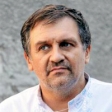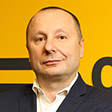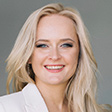Заяви по ПДЧ відбивають проблеми німецької "широкої коаліції"?
Нещодавні заяви очільників німецького уряду щодо ПДЧ для України і Грузії (у тому числі абсолютно несподівана теза про проблеми Криму) привернули увагу і західних аналітиків. Щоб не займатися переказом експертних думок, додаю для англомовних читачів одну із аналітичних статей з цього приводу. А сам лише дещо розширю фінальну тезу цієї статті:
Німецька "широка коаліція" (ХДС/ХСС + СДПН) має внутрішні суперечності, а за рік її очікують вибори з непередбачуваними результатами. Ну а нинішній голова МЗС, соціал-демократ Штайнмайєр, як зазначають аналітики, продовжує щодо Росії лінію Шрьодера (Штайнмайєр очолював відомство канцлера протягом шести років). Нещодавно голова МЗС критикував зауваження відомства канцлера Меркель щодо стану демократії в Росії. У свою чергу п. Меркель стала першим західним лідером, який відвідав Росію після президентських виборів, і у розмові з нею Путін вельми емоційно висловив застереження щодо ПДЧ для Києва і Тбілісі. Це відбулося 8 березня, тобто за 2 дні до вищезгаданої заяви Меркель. Крім "русоцентризму" Берліна, на це могли вплинути і стосунки всередини німецької "широкої коаліції". Можливо, Меркель не хоче конфліктувати з МЗС у формуванні зовнішньої політики щодо Росії. Адже соціал-демократи мають внутрішні проблеми, і вона не хоче своїми діями консолідувати своїх майбутніх конкурентів на виборах.
Eurasia Daily Monitor – Volume 5, Issue 48
March 13, 2008
IN THIS ISSUE:
*Muted international debut for President-Elect Medvedev...
*As Putin refuses to yield on NATO
*Moscow's MAP concerns backed by Germany
*Skepticism for Erdogan's "new" Kurdish package
GERMANY TORPEDOES UKRAINIAN, GEORGIAN MEMBERSHIP ACTION PLANS AHEAD OF NATO SUMMIT
With only three weeks remaining for necessary damage repair prior to the NATO summit, the German government has perhaps irreparably damaged the Membership Action Plan (MAP) goals of Ukraine and Georgia. Chancellor Angela Merkel has turned down those two countries' MAP candidacies, thereby following the lead of her number two in the government, Minister of Foreign Affairs Frank-Walter Steinmeier. While that Ministry had resisted the Ukrainian and, especially, Georgian MAPs quietly and by applying inertia within NATO councils, Merkel has now gone public and with a tone of finality ahead of the Summit.
The chancellor was addressing a landmark forum of the German armed forces' top brass (Kommandeurtagung) on March 10 in Berlin, in the presence of NATO Secretary-General Jaap de Hoop Scheffer. In her speech, which dealt primarily with Afghanistan's challenges, Merkel also cautioned against opening the door to Ukraine and Georgia. 'Countries that are involved in regional or internal conflicts can not become members [of the alliance]," she stipulated, in a chilling "No" to Georgia.
Moreover, "qualitatively significant" internal public support would be required for countries' accession to NATO. It is not enough for countries' membership aspirations to be only supported by the incumbent leaderships, Merkel noted. Nor could the alliance risk admitting countries on the basis of their voter preferences, she contended (DPA, March 10).
The unusual demand for "qualitatively" strong public support seems an oblique dismissal of Georgia's more than 70% support as merely quantitative, thus insufficient in Berlin's view. This seems also the gist of the allusion to voter preferences, which in Georgia's case found expression in the January 5 plebiscite on NATO aspirations. On the other hand, the reference to support narrowly based in the leadership group clearly seeks to devalue the MAP application submitted by Ukraine's three top leaders (see EDM, February 14).
Those remarks utilize two misconceptions. The first misconception confuses MAP with actual membership in the alliance and mixes up MAP applications from aspirant countries with accession invitations from the alliance. Berlin is setting strictures and raising bars to Georgian and Ukrainian membership, even though membership is not on the upcoming summit's agenda and will not be for several years yet to come. MAPs are tools to assist countries preparing for membership over several years' cycles.
Thus, by claiming to oppose Georgian and Ukrainian membership at this time, Berlin will be seen as opposing actually the paths toward membership of those countries and blocking their further progress along those paths. Blocking that possibility early on is Russia's declared goal, not Germany's. Thus, questions would inevitably arise as to why Germany finds it expedient to support indirectly a goal that cannot be Germany's own.
The other misconception would hold Georgia liable for the two conflicts on its territory, and terms those conflicts "internal." While most Western governments are loath to publicly acknowledge the actual nature of those conflicts, few could doubt analytically that they are inter-state conflicts conducted by Russia on Georgia's territory, with de facto ongoing annexations. Reluctance to acknowledge Russia's responsibility for that situation has never led Western governments to hold Georgia liable for the ramifications. At this moment, however, Berlin seems to exploit a Russia-created situation as an argument against Georgia, against a NATO MAP program, and for a Russia-desired political outcome to negate MAP.
Merkel's speech to the top brass did not assess Georgia's and Ukraine's respective national performances on meeting NATO Partnership goals and on contributing to allied field operations. Thus an impression is created that some MAP programs or "membership" aspirations can be blocked on considerations other than merit and performance. And given Berlin's current policies toward Moscow, Germany's position on this issue will be attributed to its relationship with Russia.
The chancellor had visited Russian President Vladimir Putin and President-Elect Dmitry Medvedev (still double-hatted as Gazprom chairman) in Moscow on March 8, two days before her Berlin speech. Merkel became the first Western leader to go to Moscow after the presidential election. While the Medvedev meeting focused on "strategic cooperation" on energy, Putin raised forcefully with Merkel the issue of the Georgian and Ukrainian MAPs in connection with the upcoming NATO summit (Interfax, March 8,9).
A policy-setting address by Steinmeier during that week to the German Society for Foreign Policy sought to position Germany equidistantly between the United States and Russia on global security affairs and as a strategic partner to Russia in European Union-Russia relations (Frankfurter Allgemeine Zeitung, Die Welt, March 5, 6).
Germany's coalition government rests on an increasingly precarious internal balance and is headed for elections a year from now with unpredictable prospects, amid a fragmenting political landscape. In this situation, which puts a premium on coalition stability, Chancellor Merkel seems to have renounced her earlier intention to reclaim Russia policymaking authority at least partly from the MFA. Steinmeier seems fully in charge of that policy – a second, barely revised edition of the Gerhard Schroeder policy – and Merkel appears content at present to follow the minister's lead in that vein.
-Vladimir Socor
Блог автора – матеріал, який відображає винятково точку зору автора. Текст блогу не претендує на об'єктивність та всебічність висвітлення теми, яка у ньому піднімається. Редакція "Української правди" не відповідає за достовірність та тлумачення наведеної інформації і виконує винятково роль носія. Точка зору редакції УП може не збігатися з точкою зору автора блогу.





